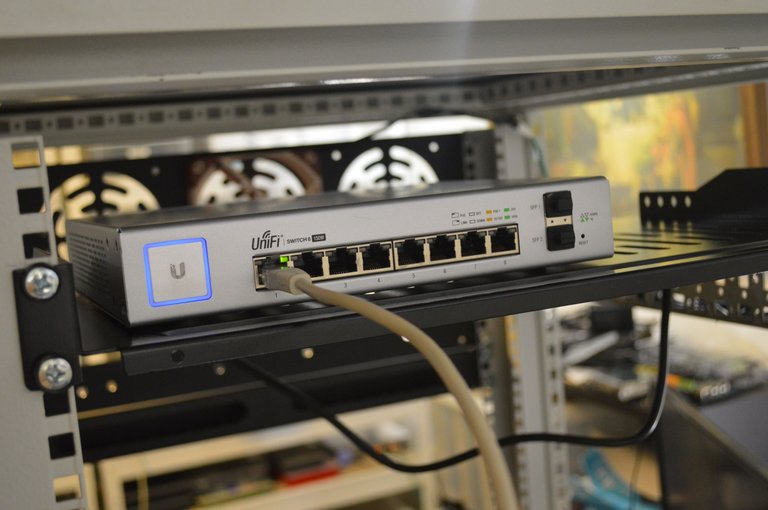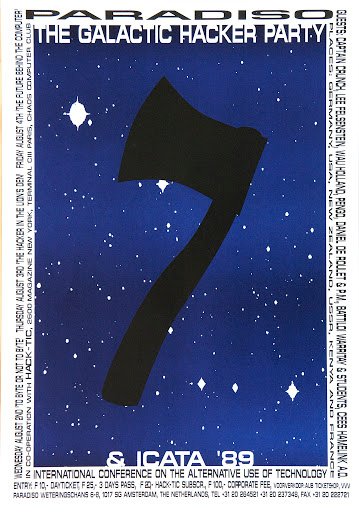
25 years ago, a group of pioneers made the Internet accessible. It was a large group of artists, scientists and hackers who worked on the idea that people should have access to technology so that they can organize themselves and communicate with each other. It must have been a fantastic time, a kind of greenfield of possibilities.

It was the first time homepages were made. You could say that the social media platform started 25 years ago, with what was then called The Digital City. That was really a city in which everyone could move, with the first technological platforms for information and communications management. There were newsgroups and discussion groups: as we now know the Internet but in a micro variant.
But it was not just optimism. Were the pioneers too idealistic? Have they not seen certain problems coming? Well, actually, yes. As early as 1989, a manifesto was written at the big meeting The Galactic Hacker Party in Paradiso in Amsterdam. It said: be careful.
Technology can offer people new opportunities, but in the hands of people with the wrong intentions, it can also easily lead to a lack of possibilities. You should not see technology as something neutral, but something as an extension of power. If you are enthusiastic about giving technology and the Internet to people on the basis of democratic principles, then you should also realize that in the hands of companies and organizations, technology could be equivalent to less democracy.
In 1989, as mentioned before, there were already warnings about this development. In 1994, an action program was launched by the Dutch government: The Electronic Highway. That was about public values. We must see the Internet as a place of opportunity, but above all as a new public domain. And that is the responsibility of the government: to ensure that fundamental rights are respected and that the balance between market and society is maintained.
We must ensure that the public domain is well developed and that fundamental rights are central. But in the past 25 years, the task of keeping the balance between the market and the public domain has been neglected. These developments partly coincide with the dominant way of thinking in our society: the market can solve everything. Healthcare, education, energy transition, public transport: almost everything has become market-oriented. And if we apply it to the internet, it's impossible to ignore the fact that it's increasingly seen as a large marketplace. Where everything is a transaction. And when it comes to our data and our identity, we even say: "well, if you get paid for it, then it's fine, isn't it?"

I think that's the wrong idea. I think we should restore that public value. It is now 25 years later, and many people think that we cannot reverse this, that this is simply the transaction: if you want to use the internet, you have lost your privacy and sovereignty. Then you simply shouldn't use all those apps.
I find it a bit sad to say, “OK, I throw my cell phone away and retreat to a secluded spot with an aluminum hat on my head. I no longer participate in this world.”
Hence the idea 'the internet is broken'. But we can also fix it. Such a major transition, however, will demand a lot from everyone. If we want to do this, there are about three areas that I think we need to mobilize.
- The first is to mobilize our legal system. Fines, breaking up 'big tech'. And we have made a good start. We have new privacy legislation within Europe (General Data Protection Regulation or GDPR), and that has its effect. In parallel, a Commissioner is working on competition policy. However, as common citizens, there are still things we can do to make things more difficult for large tech companies. Citizens could unite and go to court, to ensure that part of the surveillance becomes legally impossible. There should be a thorough surveillance protocol. Those protocols are not yet completely exploited.
- A second area, which is a more fundamental issue, are economic models. The revenue models that we currently use, ensure that our privacy, our data, are central. If you don't change this structure, you might never be able to change the approach of tech companies (and governments). We must ensure that new revenue models are created that are more 'commons' based, in which one manages shared resources. You see very interesting models in the context of open source and open data. They must be more promoted and disseminated.
- A third area, and one that is quite crucial: Who actually designs technology? Who's at the controls? We must get out of that defensive attitude, namely that something is developed first and possible societal reactions follow later. If we say that technology is an expression of power and not neutral, then we have to get involved ourselves. Then we should not accept that large programs around artificial intelligence are set up only with science and industries concerned. Then society should roll up to the table - In our rightful spot, and not just as a reflective party. One important requirement is that we need to have that capacity and knowledge in our society. We have to be designing ourselves. Technology is an expression of our culture and is something everyone should be involved in. We will, therefore, have to invest enormously in alternatives. Blockchain technology and its open-source nature can represent a huge step forward in this.
The predominant feeling is that we need to adopt a different attitude. We need to share a different story about technology. We are often told that technology is something that happens to us. Something we need for progress. And if you approach technology with some criticism, you will often be silenced quickly. Then you no longer participate, or you are afraid of technology, or not innovative enough. I think that the critical power of the masses is crucial right now. Critical in the sense of distinctive. I'm not against or for technology. A better question would be: what are you hoping to achieve with technology and what not?
That other narrative, that it doesn't happen to us, but that we start from the idea that we develop technology together, should be the basis for fixing the Internet for the next 25 years.

First photo by Thomas Jensen on Unsplash
I enjoyed this read.
great post.
Thanks, glad you liked it. I totally agree that most people actually don't care about surveillance. We must make people aware that it's important, I would even say crucial, to reshape the Internet of the future and that we can all participate in this. Too bad people care more about a nice interface then what's actually behind the curtains. However, that is also something that blockchain projects still have to work hard on. At the moment it is all too complicated. As a result, many people drop out, even if they find the idea interesting.